ear for eye at the Royal Court
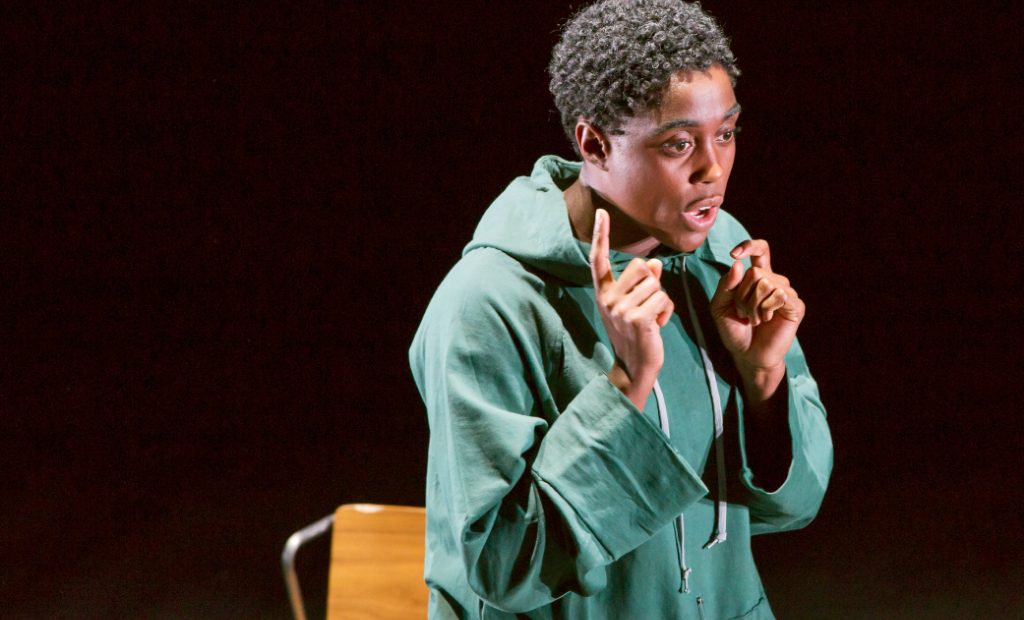
With ear for eye, debbie tucker green has managed to produce a work of such craft and quality that each individual section could stand on its own, as poetry, play or video installation.
Structurally the piece is a marvel. The bleak lyricism of Part One – focusing on a generational battle over how to fight racism, the tension between progress and change, action versus perceived inaction, and the repeated experiences of the black body in the UK and US – leads into the tête-à-tête of Part Two, which sees the power dynamics captured in the opening scenes replicated in the classroom.
There, a Caucasian teacher and his African-American student debate a series of shootings in America, the latter trying to pierce the former’s patronising insistence on reeling off excuses for the violent crimes rather than name the perpetrators for what they are: white supremacist terrorists.
Part Three then proceeds to the pre-recorded descriptions of US segregation laws and British Slave Codes by white actors and non-actors. By having those older laws follow their 20th century equivalent, tucker green reinforces an idea that permeates the entire play: that modern racism isn’t an American phenomenon – as the UK media, including theatre, often makes it seem – and is in fact rooted in practices the British Empire seeded around the globe.
tucker green – who writes and directs – wrings both specificity and universality from ambiguity, her dialogue leaving spaces for the audience to fill in the gaps with their own awareness of the world, stripping the language down to the essentials of what needs to be said.
So, kudos, then, to the cast for nailing the demanding rhythms of her writing. There isn’t a weak link in the sizeable ensemble, though special mention should go to Tosin Cole, ever-moving in his justified anger; Michelle Greenidge and Eric Kofi Abrefa for their respective depictions of the damage wrought by arrest; Kayla Meikle for yet another blazing monologue, having stolen Dance Nation earlier in the year; and Lashana Lynch and Demetri Goritsas for their extraordinary work in the remarkable second act.
Honestly, there is just too much to praise to fit it all in here – the level of detail tucker green brings as director is astonishing. A small example: in Part One two different black boys are given “the talk”, centred on what they should do with their hands in order to avoid trouble (a scene that becomes even more powerful when performed in BSL); cut to Part Three and the video lingers as much on the white speakers’ hands as it does their faces.
It would be easy to centre the response to ear for eye on how “important”, or “urgent”, or “relevant” it is. Yet it is first and foremost a singular vision by a true artist, something that shouldn’t be lost in the post-show discussion of its politics.
Connor Campbell
Photo: Stephen Cummiskey
ear for eye is at the Royal Court from 25th October until 24th November 2018. For further information or to book visit the theatre’s website here.

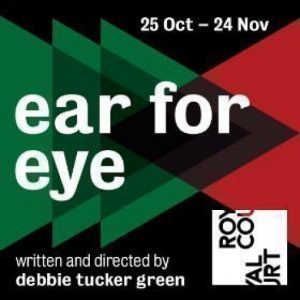
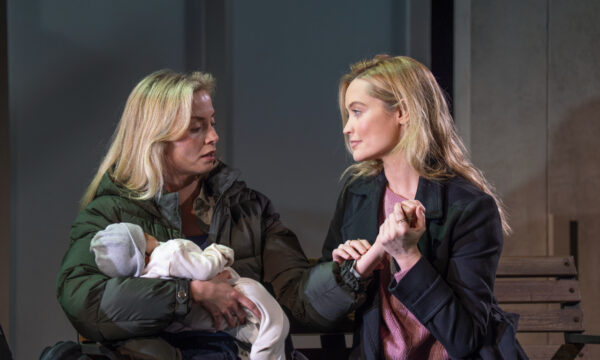
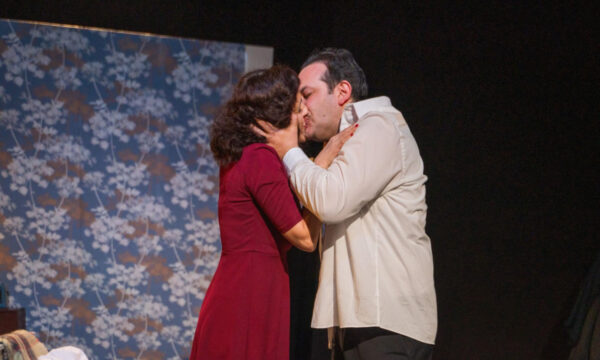
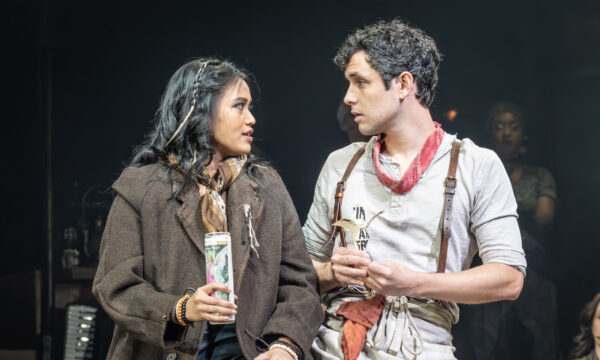
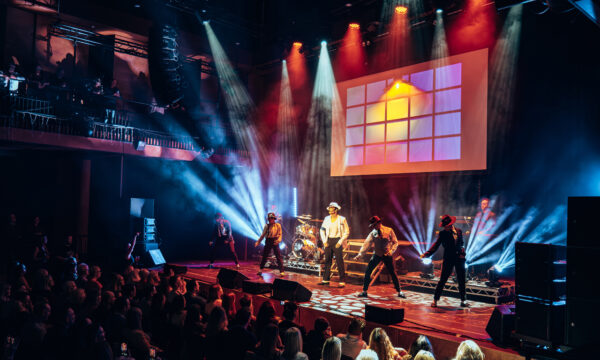
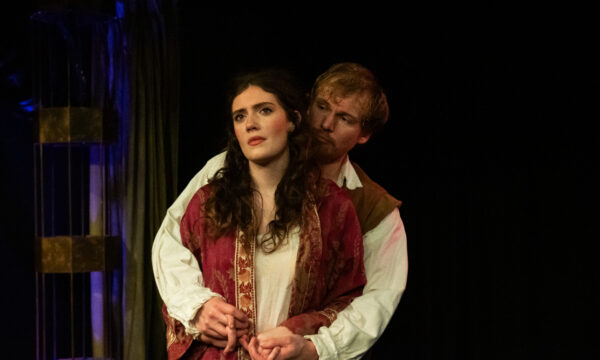
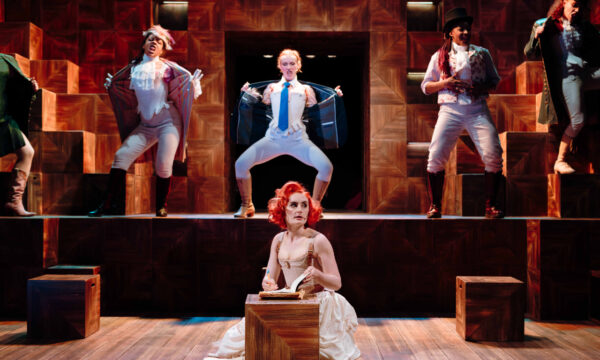
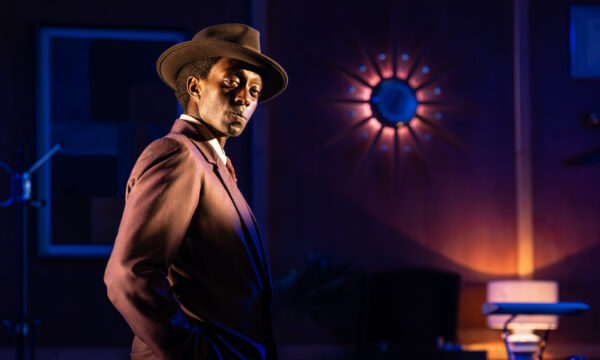
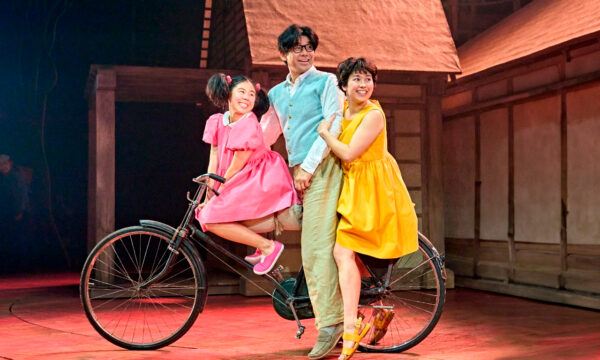









Facebook
Twitter
Instagram
YouTube
RSS